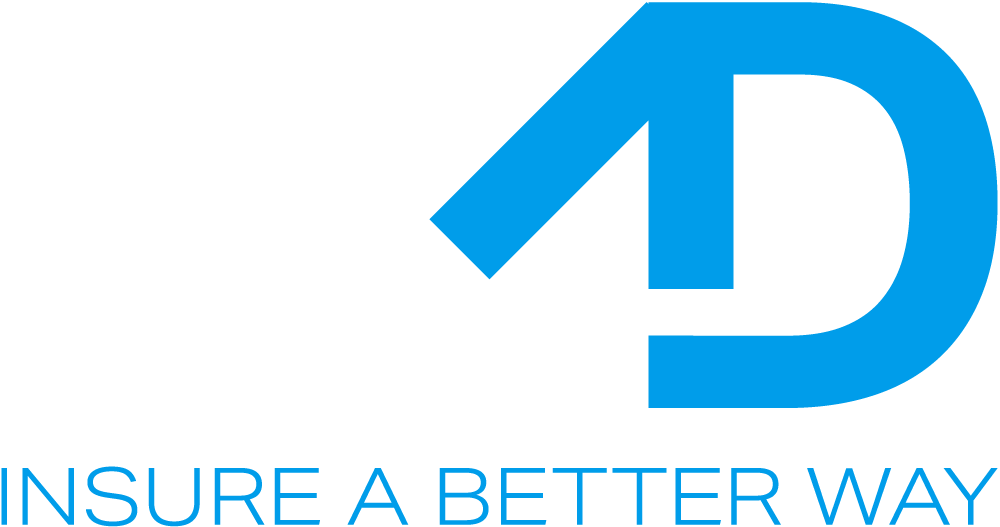
Health insurance premiums are a critical aspect of managing your healthcare costs. They represent the amount you pay to an insurer for your health insurance coverage. Understanding how these premiums work, how they are calculated, and the factors that influence their rates can empower you to make informed decisions regarding your health plan. In this article, we will talk about health insurance premiums, including private health insurance and Medicare, and equip you with all the knowledge you need.
What is a Health Insurance Premium?
A health insurance premium is the amount of money that an individual or employer pays to an insurance company for health insurance coverage. This payment can be made on a monthly, quarterly, or annual basis, depending on the specific terms of the insurance policy. The premium is essentially a fee for the insurance coverage provided, and it contributes to the overall insurance costs incurred by the insurer. This fee does not typically cover out-of-pocket medical expenses, such as deductibles, copayments, or coinsurance, which are additional costs that policyholders may need to pay when they access healthcare services.
The calculation of a health insurance premium can be a complex process that involves several variables. Insurers typically use statistical models to determine the likelihood of claims based on the current health of the insured individuals, their age, lifestyle choices, and past medical history. The insurer may also consider regional healthcare costs and the overall risk associated with the insurance pool. As a result, the premium price may vary significantly from one individual to another, reflecting the unique health circumstances of each applicant. Factors such as the type of insurance policy selected and the level of coverage desired also play a crucial role in determining the final premium amount.
Several key factors influence the rates of health insurance premiums. One of the primary considerations is the age of the insured individual; older adults often face higher premiums due to an increased likelihood of health issues. Additionally, pre-existing health conditions can lead to elevated premium prices, as individuals with chronic illnesses may require more medical care. Other factors include lifestyle choices, such as smoking or high-risk activities, and the geographic location of the insured, which can affect local healthcare costs. Insurers also evaluate the specific insurance plan categories chosen, which can have varying coverage levels and associated premiums.
How Do Private Health Insurance Premiums Work?

Private health insurance premiums differ significantly from public health insurance premiums, such as those provided by Medicare or Medicaid. Private health insurance is typically purchased from insurance companies and offers a wide range of plans with varying levels of coverage, which can result in differing premium amounts. In contrast, public health insurance programmes often have standardised premiums that are influenced by government regulations and funding. The availability of subsidies for low-income individuals in public programmes can also affect premium costs, making them more affordable compared to those of private health insurance premiums.
When choosing a health insurance plan, it’s essential to understand the difference between annual and monthly premiums. An annual premium is the total amount paid to the insurer over a year, while a monthly premium is the portion of this total that is paid each month. For many individuals, monthly premiums are more manageable as they spread the cost of insurance coverage throughout the year. However, some insurers may offer discounts for paying the annual premium upfront, which can be an attractive option for those looking to save on insurance costs.
Private health insurance policies can vary widely in terms of coverage and premium rates. These policies are designed to provide additional insurance coverage beyond what public health insurance offers. They may include features such as lower deductibles, wider networks of healthcare providers, and quicker access to specialists. Understanding the details of private health insurance policies, including the covered services, exclusions, and limitations, is crucial for making an informed decision about which insurance plan best suits your needs and budget. Comparing different policies from various insurance companies can also help you find the most affordable option.
How Can I Lower My Health Insurance Premium?

Health Savings Accounts (HSAs) are a valuable tool for individuals looking to lower their health insurance premiums and overall healthcare costs. HSAs allow individuals to set aside pre-tax dollars to cover eligible medical expenses, effectively reducing their taxable income. By using an HSA in conjunction with a high-deductible health plan, individuals can save money on their premiums while also having a dedicated fund for out-of-pocket medical expenses. This dual approach not only promotes healthier spending on healthcare but also helps individuals build savings for future medical needs.
Another effective strategy for lowering health insurance premiums is to compare different insurance companies and their offerings. The health insurance marketplace provides a platform for consumers to explore various plans and premium rates from multiple insurers. By utilising this marketplace, individuals can identify the best potential deals on health insurance coverage tailored to their specific needs. Additionally, reviewing customer feedback and ratings for different insurance companies can help ensure that individuals select a provider known for reliability and quality service.
Negotiating premium prices with insurers can lead to significant savings for consumers. Many individuals are unaware that insurers may be willing to discuss premium rates, especially if you have a good track record of maintaining coverage or if you are coming from another provider with a favourable history. Presenting offers from competing insurers can also serve as leverage in negotiations. Understanding the competitive landscape of health insurance can empower consumers to advocate for better rates and more favourable terms, ultimately reducing their overall insurance costs.
What Should I Know About Medicare and Its Premiums?

Medicare is a federal health insurance programme primarily for individuals aged 65 and older, but it also covers certain younger individuals with disabilities. Eligibility for Medicare is generally based on age, but other criteria may apply. Medicare premiums vary depending on the specific plan chosen, including Part A, which typically has no premium if you have paid Medicare taxes long enough, and Part B, which usually requires a monthly premium. Understanding the eligibility requirements and associated costs is essential for potential beneficiaries to ensure they are adequately prepared for their healthcare needs.
As we look ahead to 2025, it is critical to understand the projected Medicare premium costs. Each year, the Centres for Medicare & Medicaid Services review and adjust premiums based on various factors, including healthcare costs and inflation. For beneficiaries, this means staying informed about any changes in premiums that may affect their budgets. Additionally, those with higher incomes may face increased premiums, known as Income-Related Monthly Adjustment Amounts (IRMAA), which should be taken into account when planning for healthcare expenses.
When comparing Medicare premiums to private health insurance premiums, several key differences emerge. Generally, Medicare premiums are more standardised and may offer lower overall costs for eligible individuals. However, private health insurance provides a greater variety of options and potential for customised coverage based on individual needs. For many, the choice between Medicare and private health insurance hinges on personal health circumstances, budget, and the level of coverage desired. Understanding these differences can help individuals make informed decisions about their healthcare coverage as they age. Contact HMD Insurance for assistance.
Conclusion
A health insurance premium is the amount you pay to your insurer to maintain your insurance policy, typically billed monthly. This payment is essential to keep your coverage active, allowing you to access healthcare services without incurring exorbitant out-of-pocket medical expenses. The premium price can vary significantly based on factors such as age, type of coverage, and the specific health plan categories you choose.
As you consider your options, it’s important to check whether your current health needs align with the selected insurance plan. Understanding terms like deductible, co-payment, and the implications of Medicare can help you make informed decisions about your health insurance coverage. The Australian government, through its department of health, provides resources to assist individuals in evaluating their health insurance options effectively.
Contact Us
If you have questions or need assistance in navigating the health insurance marketplace, feel free to reach out to HMD Insurance. We are here to help you understand what a premium in health insurance entails and guide you through selecting a plan that best fits your needs and budget. Contact us today for personalised support and insights into managing your health insurance costs effectively!
Frequently Asked Questions:
What is an insurance premium in the context of health insurance?
An insurance premium is the amount you pay to a health insurer for your health insurance coverage. This can be a monthly premium that may vary based on factors like your age, the type of health fund you choose, and the specific coverage levels you require.
How does the age-based premium system work for private health insurance?
The age-based premium system means that your health insurance premium may increase as you age. This is designed to reflect the higher healthcare costs associated with older age groups, which is often linked to the lifetime health cover policy.
What factors influence the proposed premium increases for health insurance?
Proposed premium increases can be influenced by various factors, including rising healthcare costs, changes in government policy, and the financial performance of the health fund. The minister for health must approve significant changes to ensure they are justified.
What does the Medicare levy surcharge have to do with health insurance premiums?
The Medicare levy surcharge is an additional tax for individuals and families who do not have appropriate private health insurance. If you pay your health insurance premiums, you can avoid this surcharge, which is designed to encourage people to keep their health insurance.
Can I get financial assistance for my health insurance premiums?
Yes, depending on your income and circumstances, you may be eligible for government rebates or assistance programmes, such as those offered through the Affordable Care Act (ACA) or other local health programmes. It’s advisable to check with your insurance provider to understand your options.
What are out-of-pocket insurance costs, and how do they relate to my premium?
Out-of-pocket insurance costs refer to the expenses you must pay yourself for healthcare services that are not covered by your health fund. These costs can vary and may include deductibles, co-pays, or services that exceed your coverage limits, which can impact the overall affordability of your monthly premium.
What is lifetime health cover, and how does it affect my premium?
Lifetime health coverage is a policy that rewards people who maintain their private health insurance over the years. If you take out private health insurance after the age of 31, you may incur a loading on your premium for each year you delay, which can increase your overall premium costs significantly.
How do I choose the right insurance provider for my health insurance needs?
When selecting an insurance provider, consider factors such as the range of care plans offered, the reputation of the health fund, customer service quality, and the premiums payable. It’s important to compare different options to find a plan that meets your specific healthcare needs and budget.
What is a health savings account, and how can it help with my premium payments?
A health savings account (HSA) allows you to set aside money tax-free for medical expenses. This can help you cover out-of-pocket costs or pay a portion of your health insurance premium, providing you with more financial flexibility when managing your healthcare expenses.





